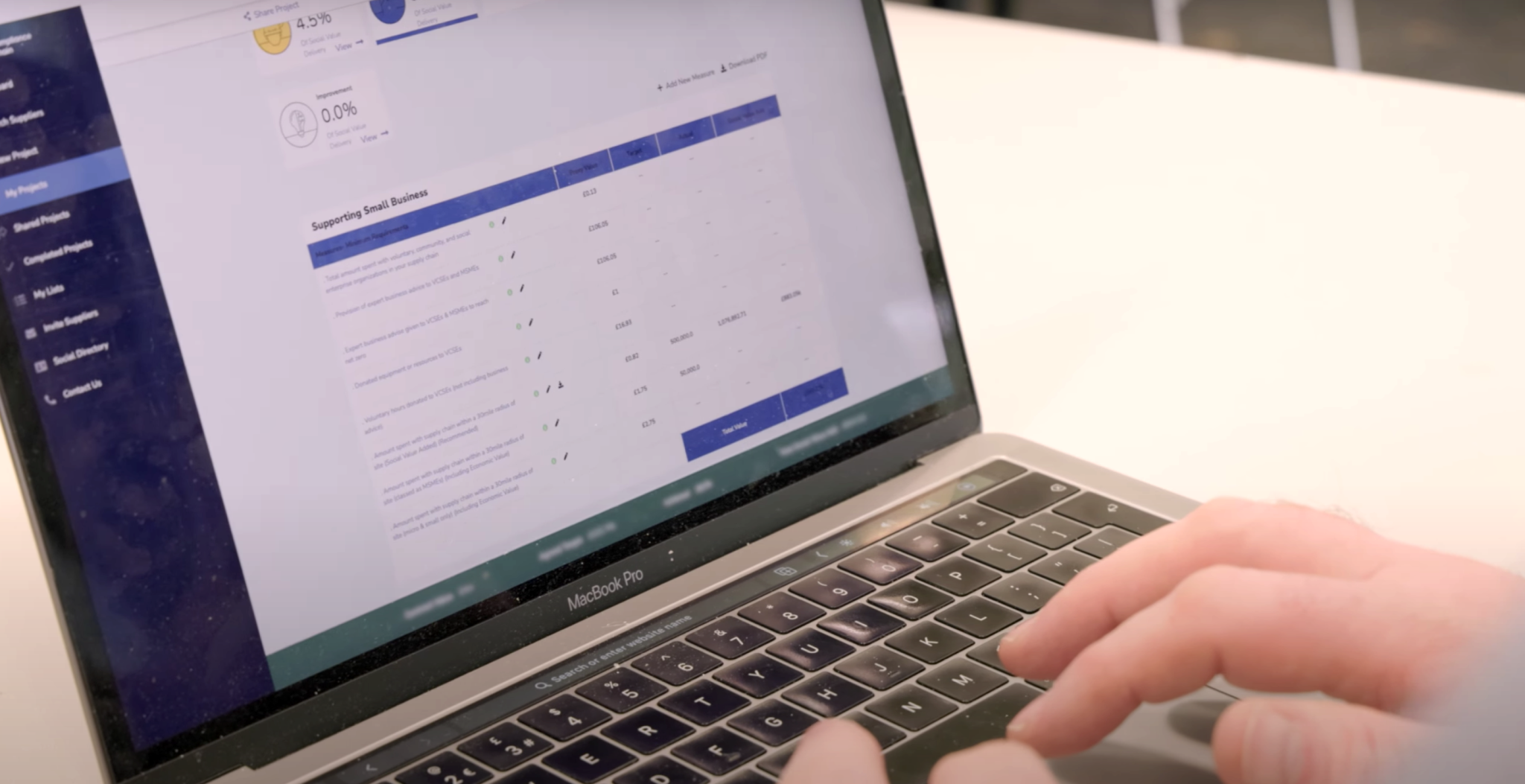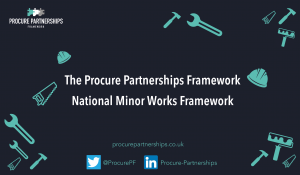Using a framework, particularly for public sector procurement, is an increasingly popular and agile purchasing method. Often with finite resources available to find suitable contractors, public sector bodies can rely on a procurement framework to ensure a smarter and more efficient way of securing the right partner for their project. By using a procurement framework, the costly process of conducting an independent procurement process is mitigated, saving time and money.
Contractors on a framework undergo a rigorous process to evidence their capabilities, demonstrate their experience and prove their accreditations and legal compliance. This gives clients complete peace of mind that the construction company appointed under a framework agreement has the right credentials to carry out the work. But a framework provider is more than just an introductory service. A procurement framework makes certain that the most suitable contractor is awarded the contract, and that accountability and compliance is ensured throughout the decision-making process. So, how can a framework support you from the start of the procurement process all the way through to project delivery?
In this article, Project Manager Nathan Taylor explains how Procure Partnerships Framework can support you from the start of the procurement process all the way through to project completion.
What is a Procurement Framework?
A procurement framework is a highly effective and streamlined public sector procurement tool. It enables an agreement to be put in place with a provider or range of providers that enables buyers to place orders for services without running lengthy full tendering exercises.
According to the Local Government Association, a ‘framework agreement’ is ‘an agreement between one or more contracting authorities and one or more economic operators, the purpose of which is to establish the terms governing contracts to be awarded during a given period, in particular with regard to price and, where appropriate, the quantity envisaged.’
Saving You Time and Money
Frameworks can reduce procurement costs by up to 90% compared with an open tender process. Their flexibility in planning and running tender processes via mini-competition and robust framework agreements because of professional due diligence, means clients save time and money. As frameworks are OJEU and FTS compliant, a full open tender process is not necessary to identify and appoint a contractor to a project. This streamlined process is faster and more efficient and can offer additional advantages such as ‘batching’ programmes of works together and ‘call-off’ contracts, which offer timesaving and cost-saving benefits via access to economies of scale through increased buying power.
Frameworks have better buying power than clients conducting their own procurement process. This means if a contractor is under performing, the framework can put that contractor through a process of special measures to ensure they are penalised and prohibited from bidding on other schemes. This acts as an incentive for contractors to ensure they meet service level agreements and complete works to a satisfactory standard when appointed to projects, as the consequences will lead to a loss of reputation and reduced future contract opportunities. For the client, this ensures any unnecessary costs or wasted time is circumvented by a competent contractor being appointed from the start.
Supporting Social Value Objectives
In 2021 the Public Services (Social Value) Act 2012 was superseded by the Social Value in Procurement Model to ensure social value within larger public procurement contracts is included and evaluated, meaning all Government tenders adopt a Social Value Model to assess and score suppliers on their positive added value to society and local communities when bidding for public sector contracts. Public sector construction projects must deliver on value for money, consider socio-economic welfare and build a robust, sustainable, and diverse supply chain. Every public sector project must adopt a comprehensive project plan to deliver social value in the built environment to encourage new jobs and skills, promote economic growth and success, and appropriately address environmental impact as part of the Government’s Net Zero by 2050 target to address climate change.
Frameworks enable collaborative working groups, where contractors work together on community projects and activities to ensure social value is delivered efficiently in areas that need it most. Frameworks help clients and contractors achieve their social value objectives, addressing local requirements and supporting a national reach. Delivering social value as part of project delivery brings communities and construction companies closer together in united support of meaningful good causes. At Procure Partnerships, every project procured through our framework has its own social value plan, guaranteeing that 12% of each project’s construction value is directly reinvested back into local communities. The agreed social value targets are governed at framework level and evaluated throughout the project’s lifecycle.
Project Delivery Support from Inception to Completion
Framework providers are involved from the early stages of procurement, and this affords them a thorough understanding and in-depth knowledge of the project, making them best placed to provide comprehensive project delivery performance analysis and monitoring from the onset. As framework procurement services are carefully designed to make contract management easier for their clients, this level of advice and support throughout the project lifecycle is invaluable.
Frameworks offer the benefit of experienced and professional procurement expertise to support public sector bodies throughout the tendering process to meet the requirements of the project and be there every step of the way to offer guidance. The Procure Partnerships team have specific sector knowledge and expertise across education, leisure, blue light, and healthcare industries to support public sector bodies throughout the procurement process and offer ongoing project delivery support. Our network of established relationships with contractors and suppliers simplifies procurement and ensures a trusted and reliable supply chain, enabling us to deliver best value solutions, measurable social value outputs and successful project delivery outcomes.
Our dedicated Project Support Team at Procure Partnerships is responsible for monthly monitoring of live projects, reporting data, and maintaining client relationships. Further, we use Compliance Chain, a complete construction industry software, to track each project we procure.
Procurement Strategy Advice
National procurement frameworks work across multiple projects in different regions and have the expertise to advise on the most appropriate procurement strategies for individual projects. Consideration must be given to the most suitable procurement route, such as single or two-stage tendering and a suitable timeframe to allocate to the procurement process. These factors determine the most robust and advantageous tender list to ensure a competitive process.
Through a framework contract award, there are two main processes known as ‘single stage’ and ‘two stage’ tendering. Single stage is a traditional approach with a fixed cost up front based on a project scope separating the design from the build. As a time and resource intensive process for contractors, it is the least favoured method, often resulting in contractors dropping out of the bidding process and not wanting to take the risk of committing to a pricing structure without visibility of the project design or works schedule.
Two-stage tendering is the most popular approach for construction contracts and has a proven track record of achieving a robust tender list. This method offers the flexibility of an ‘open book’ approach to the sub-contracted tender lots. Contractors submit bids based on an initial project design and compete for preferred contractor status. This collaborative process, with a pricing schedule and programme of works upfront, reduces the time and resources needed to complete the bid and mitigates risk to the contractor. With only the preferred bidder moving to the second stage, the client appoints a successful contractor under a Pre-Construction Services Agreement (PCSA) which initiates an agreement between the client and the contractor to press on with the project without a full design or fixed sum to conduct the works.
Framework providers have extensive and up-to-date procurement knowledge ensuring public sector clients benefit from their procurement strategy advice to achieve strategic targets, leverage buying power and best value, adopt compliant and diligent processes and maximise opportunities to deliver social value.
The Procure Partnerships Framework
Structured across eleven regional framework lots, Procure Partnerships provide local delivery with national governance. Our framework creates innovative opportunities to support public sector bodies with procurement processes to deliver project objectives. The framework is designed to be flexible, giving clients the choice of single stage or two stage procurement options and up to eight call-off contract options. Our procurement expertise and construction industry knowledge across key public sector services enables us to offer a reputable and trusted national procurement framework service, going above and beyond to support each Framework User throughout their Projects lifecycle.

Nathan Taylor, a proficient Project Manager at Procure Partnerships Framework, brings over four years of experience in the construction industry, where he has excelled in overseeing project teams from the tender stage to completion.



